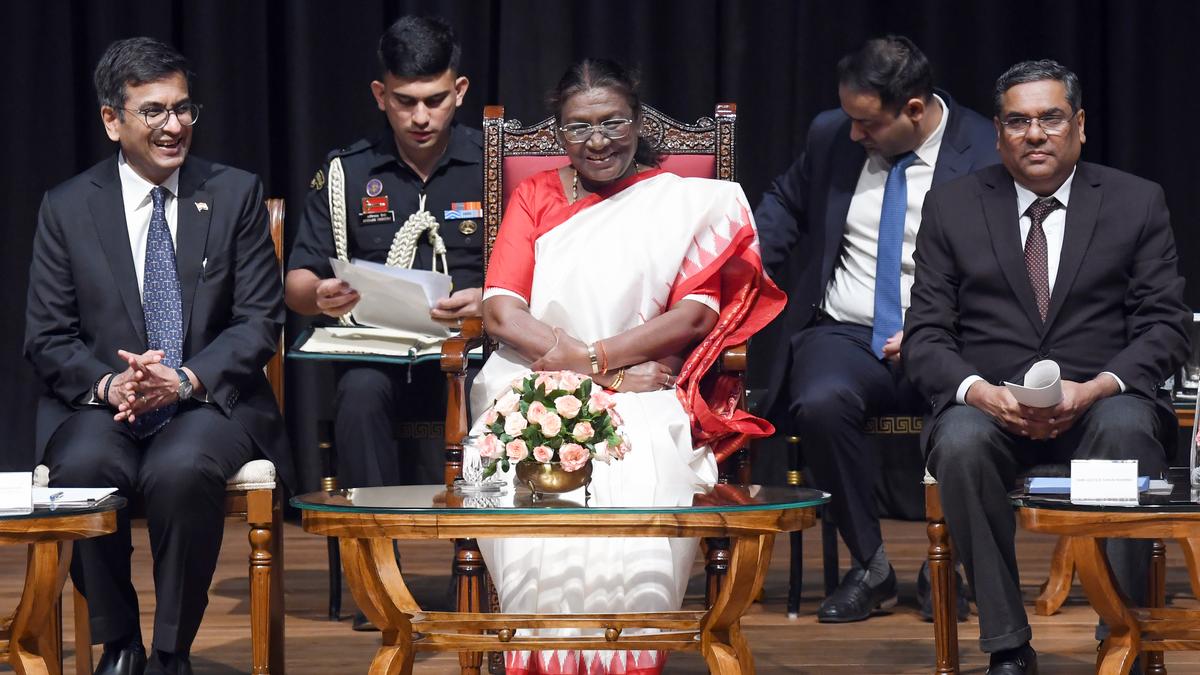
President Murmu releases three books of Supreme Court
The Hindu
President Murmu releases Supreme Court publications on 75 years, prisons, legal aid; CJI Chandrachud emphasizes self-reflection for excellence.
President Droupadi Murmu on Tuesday released three publications of the Supreme Court on the 75 years of the court, prisons in India and legal aid.
Chief Justice of India (CJI) D.Y. Chandrachud said the three books were moments of self-reflection, both for the Supreme Court as well as the larger legal system.
“For any institution, the pursuit of excellence necessitates the deliberate act of self-reflection. As part of this process, we must carefully assess our past and present and use what we extract to inform our actions in the future,” the Chief Justice said.
Chief Justice-designate Sanjiv Khanna, Supreme Court judge Justice B.R. Gavai and Law Minister Arjun Ram Meghwal participated in the function.
The publications are titled “Justice for Nation: Reflections on 75 years of the Supreme Court of India”; “Prisons in India: Mapping Prison Manuals and Measures for Reformation and Decongestion”; and “Legal Aid Through Law Schools: A Report on Working of Legal Aid Cells in India”.
Speaking on the occasion, the President said the Supreme Court had developed a jurisprudence which was rooted in the Indian ethos and realities. She was happy to note that the book titled ‘Justice for Nation’ captured the high points of the Supreme Court’s journey of 75 years and described the court’s impact on various aspects of the lives of the people.

While expressing happiness over the release of the pending 25% dues pertaining to bills for the completed civic works, contractors working under the Bruhat Bengaluru Mahanagara Palike (BBMP) termed the decision to withhold 5% as security against any defect found by Justice H.N. Nagamohan Das’ committee as unfair.

All India Kisan Sabha (AIKS) staged a demonstration in Thoothukudi against the Tamil Nadu government’s decision to classify agricultural lands owned by farmers in Keela Vilathikulam, Kathalampatti as temple assets, as well as to repeal the temple pattas of the lands which were taken from farmers of Vilvamarathupatti









